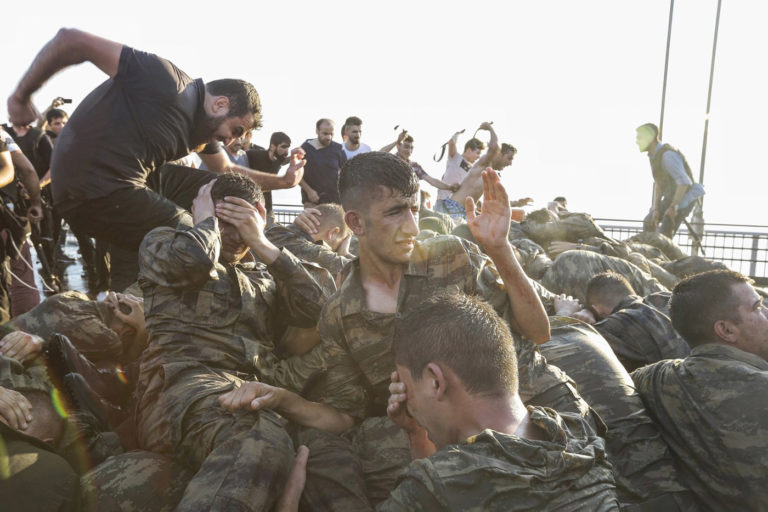In a unanimous decision, Turkey’s Constitutional Court on Wednesday found a government decree that granted immunity to civilians who were involved in criminal activities to suppress a military coup attempt in 2016 to be constitutional.
The application to annul the controversial decree was submitted by the main opposition Republican People’s Party (CHP) in March 2018, three months after it was issued. In its petition the CHP argued that the relevant provisions of the decree amounted to a de facto amnesty, which could only be issued with a law passed by a three-fifth’s majority in the Turkish parliament.
The decree was issued by the Justice and Development Party (AKP) government during a two-year state of emergency that was declared in Turkey on July 20, 2016, less than a week after the abortive putsch.
The article in question said regardless of an official title or duties or the lack thereof, people who played a role in the suppression of the failed coup on July 15, 2016 and subsequent events and terrorist activities would be exempt from criminal liability.
Turkey experienced a controversial military coup attempt on the night of July 15, 2016 which, according to many, was a false flag aimed at entrenching Erdoğan’s authoritarian rule by rooting out dissidents and eliminating powerful actors such as the military in his desire for absolute power.
The abortive putsch killed 251 people and wounded more than a thousand others. The next morning, after announcing that the coup had been suppressed, the Turkish government immediately started a huge purge of military officers, judges, police officers, teachers and other government officials, which ultimately led to the summary dismissal of more than 150,000 public servants from their jobs.
Turkish Minute quoted CHP Deputy Chairman Muharrem Erkek as previously saying: “Every citizen who exercised his right to resistance against the coup attempt is innocent, and this is a natural right. However, we unfortunately saw during the coup attempt that innocent soldiers who had nothing to do with the coup and were even unarmed were lynched that night. Investigating these actions is a requirement of a state of law.”
“This article, for the annulment of which we applied to the Constitutional Court, includes very ambiguous wording that could lead to serious problems in the future,” the lawmaker also warned.
The controversial article was also slammed by critics who argued that it paved the way for armed civilian gangs in Turkey.
One of those critics was Turkey’s former President Abdullah Gül, who tweeted: “The ambiguity that does not comply with legal parlance in the text of state of emergency decree No. 696, which I think was released to protect the hero citizens who took to the streets to resist a traitorous coup attempt on July 15, is worrisome in terms of a state of law.”
“I hope to see its revision in order to avoid giving an opportunity to events and developments that could sadden us all,” Gül added.
Lawyers from the Union of Turkish Bar Associations also criticized the emergency decree for granting impunity to perpetrators of political violence, arguing that it did not make clear what sort of actions could be seen as furthering the aims of the coup. The decree covers only the night of the failed military takeover itself, a spokesman for the AKP government said in response, despite the date not being specified in the text.
Source: SCF



